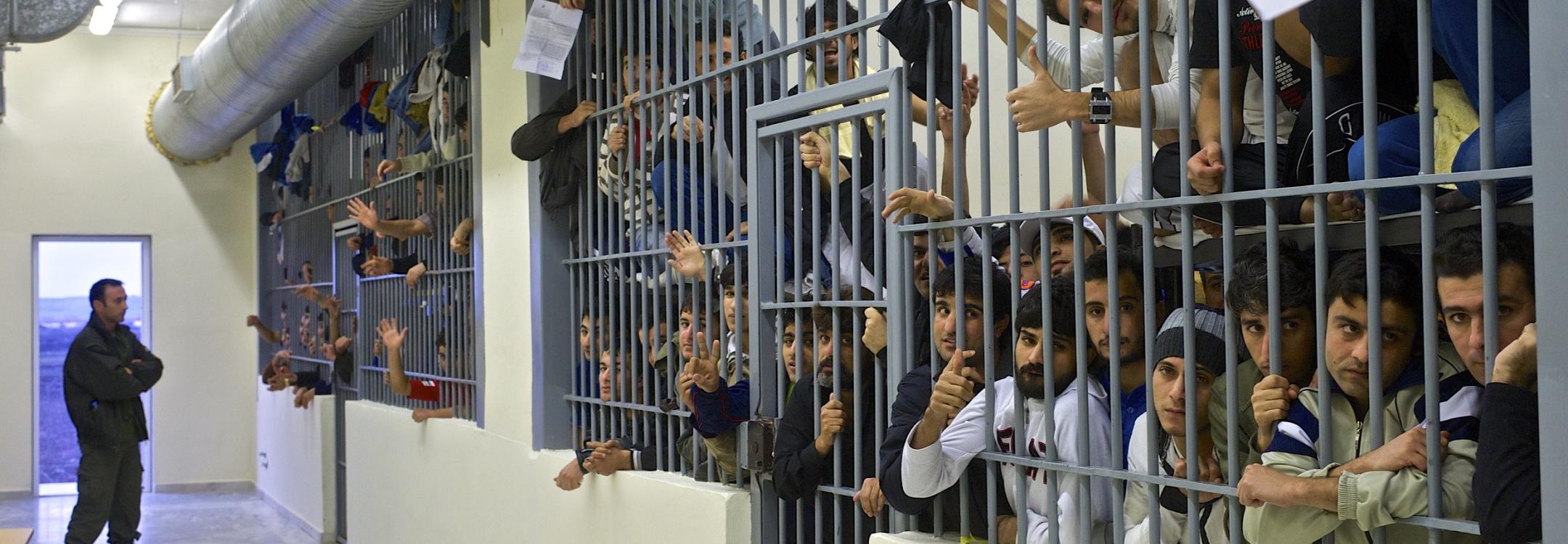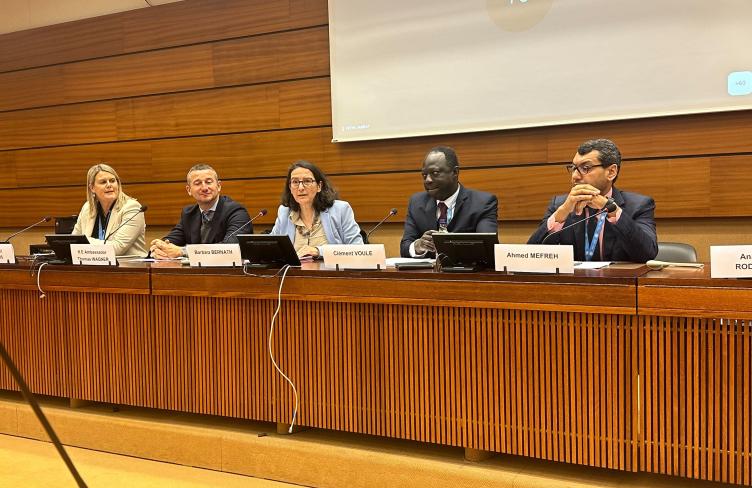
Contrary to Australia’s assertions, the Committee against Torture has clearly stated that Australia does bear obligations under the UN Convention Against Torture for asylum seekers detained in offshore processing centers in Papua New Guinea and Nauru, because this is areas within Australia’s ‘effective control’.
The Committee noted, after its recent review of Australia, that detainees on Nauru and Manus Island in Papua New Guinea were transferred by Australia; the detention centers were run with Australia’s financial aid; and the private security contractors that run the centers were chosen by Australia. This all clearly indicates that asylum seekers in detention are within Australia’s ‘effective control’ and thus Australia has an obligation to uphold their rights under the Convention.
SPT visit to Nauru in 2015
The rights of asylum seekers in offshore detention are not being upheld according to the UNHCR, who have previously found that basic standards are not being met. Conditions on Nauru are likely to come under further scrutiny in 2015, with the UN Subcommittee on Prevention of Torture recently announcing that it would visit refugee camps on Nauru. The SPT has the power to conduct visits to any country that has ratified the Optional Protocol to the Convention against Torture (OPCAT) and Nauru is the only Pacific island country to have done so.
Relevantly, the Committee called on Australia to ratify the OPCAT, a treaty that it signed in 2009 but for which progress towards ratification has stalled in recent years. Ratification would not only assist in reducing risks of ill treatment in immigration detention but other types of detention across the county.
The Committee also expressed concern at draft laws currently before the Australian Parliament, which would remove safeguards and lower standards of protection under the Refugee Convention and the UN Convention against Torture. In particular, the Australian government is seeking to change the threshold for returning asylum seekers to a standard where they must show they are ‘more likely than not’ to suffer torture or cruel, inhuman or degrading treatment on return, a departure from the international standard, which requires only a ‘real risk’ of torture. Significantly, the Australian government has been asked to report back to the UN in a year on these draft legislative provisions.
Domestic polls indicate that a majority of the Australian public supports the current government’s policies on asylum seekers. Yet with Australia seeking a seat on the UN Human Rights Council in 2018, and facing peer-review before the Council’s Universal Periodic Review in October 2015, the comments of the Committee against Torture are likely to resonate widely.
